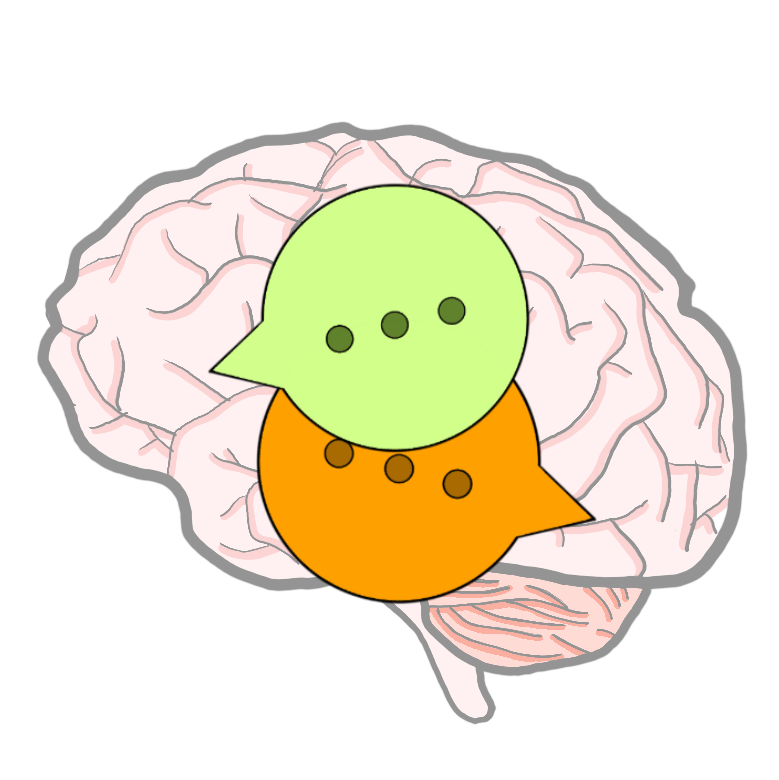
Psychology / Counseling / Career Advice
This meeting covered a lot of important information about psychology, college/career counseling, and career advice for highschoolers!
Speaker's background
Worked at Pepperdine University: for the business school of law students and MBA students (graduates for business and law)
Worked in career centers
Bachelor's degree in psychology
Master's degree in counseling with a specialty in college counseling
another Masters in public policy (CLU gave her an employee discounts)
Earned her doctorate in higher education leadership a few years ago for working at a college
Why she chose her career
Originally received her masters in clinical psychology
When she started to help people, she realized it is hard work
People in sessions would make progress, but then leave and lose all that progress
She heard about a positive type of counseling where you motivate people and you help them set goals = career and guidance counseling
She went to West Valley Occupational Center in Woodland Hills and did an informational interview with the career counselor
Switched over into college counseling and is much happier working on a college campus
She helps people in grad school, law school, med school to get great jobs and internships
So she absolutely loves her job
Every day she gets great success stories (ex: helping students to get internships, more examples at clucareer on Instagram)
Day to Day Activity
- makes her own schedule each day (building the social media site, checks her email)
- receives many emails asking for her to look over personal statements, resumes, cover letters or questions
handles all the student worker jobs on campus (around 800 student worker jobs)
runs a workshop
updates the website because they have some new majors and minors
recruits students
goes into her candidate database of over 20,000 students and alumni, looks for people that say they wanted a specific internships and emails company internship requests directly to them
students who got an interview come in to practice for it
has freedom to decide if she does not want to do workshops one semester
about three counseling sessions every day (five to ten minutes long)
to conclude day-to-day activities include: emails, meeting with people, doing workshops, and teaching her class
Career Counseling
Workshops
- Ex: using social media for your career salary negotiations
- interviewing, job search, resume writing, how to get an internship
Plan events
- career fairs where over 100 employers are invited onto campus
Teaches classes (career, business, and communications)
- students come to class to guide workshops (but includes class credit)
- Do values assessments: look at your values and think how you want them to align with your job
- Ex: your manager is doing unethical things (stealing money) that might not align with your values.
Write grants
- Her idea of helping different causes was hard to achieve because she was busy
- So, she started this program, where she found about 50 nonprofits in Ventura County: United Way, Big Brothers Big Sisters, Boys and Girls Club, Alzheimer's, ALS, etc. and match students into internships (without requiring a resume)
- using her value of helping others
- she wrote a grant to Bank of America about this program so that students get paid by the corporations (receive over $100,000 in the last five years)
How to write grants: go to the people going to give money and answer the following questions:
Why is your program effective?
What does it help?
How can you prove it?
gives surveys to the students before and after to prove their learning
proves to employers that they should give money.
Employer relations
dress nicely for employer meetings and greet employers
employers come to the college campus to try to recruit students, do interviews for jobs
Psychology
psychology can go into the business field, human resources, sales
if you're good with people and establish trust easily (everybody just talks to you and tells you their problems), then you'll probably do really well in sales
women do well in sales because they're may appear as less pushy
psychology helps you to be good with people
this would work in almost any field
Jobs in psychology
Therapist: 6-10 years of schooling
Counselor: a two to three year masters degree
Counseling (General)
College counseling jobs include:
- career counselors
- academic counselors
- study abroad office counselors (traveling all over and checking out the sites where the students are going to go)
- financial aid counselors
- admissions counselors (people that come here to try to get you to go to college)
- higher education
- counseling in K through 12 (similar to our high school counselors)
- this requires an extra credential
- counselors at your school here they stay forever
- her type of counseling takes less schooling, it's easier to get into and there's more jobs
- in colleges, you can be an assistant director, a director, VP, a dean with just with a masters
- a doctorate can be used if you want to be a president of a college or something big time
- in college counseling you only really need a master's degree.
Public
Policy
There's a lot of field representatives and caseworkers that work in government and help communities
there's a big helping aspect
a lot of government offices where you actually help the callers that call in that have a major problem and you do a lot of problem solving for them
it sets you up to go into legal stuff: nonprofit and government
Ex: there's an organization that receives $200 million a year from the tobacco tax
they give money out to other small nonprofits that do things for children
typical policy analyst jobs actually analyze policy (not government-related)
but public policy is mostly something you'd want to do for government.
Steps to finding your career and beyond . . .
This outline (download it above) works for everyone
- first stage: career exploration
- who am I?
- what do I like dislike?
- what is my personality like?
- what subjects am I good in?
- what jobs are out there?
- stage two: research different fields
- She met with a career counselor when she wasn't sure what job she wanted
- that solidified her goals for me to meet with somebody in the field who was very happy
- also by reading stuff or knowing a few people in that field
- stage three: you have your decision and know what you want to do (some students might already be here)
- it's a matter of just putting things on your resume and doing extracurricular activities that are related
Assessing possible careers:
know your limitations (ex: don't be a doctor if you are not that interested in science)
ask yourself what you are good at
Google "qualifications" for different jobs- options for job may be in Texas or Alaska, but it doesn't really matter
- go down to the qualifications of the job and then it'll state required degrees and what is acceptable
- a variety of degrees can be used for a job (just one accept degree is a popular misconception)
ask where you want to work
- ex: nonprofit organizations are mostly government or business jobs
Majors and Minors in College
She does not believe in getting double majors or minors because it means more schooling
- if you have extra time on your hands it's better to get an internship
- It will turn into something that's actually going to help you to get your job
- even if you have a double major and a minor in the end, companies are mostly looking at your GPA and then your standardized test scores
- most people go to college to get a good job, so internships are important
- there are a variety of majors available for a job
- majors are secondary to your experience; experience is most important
- A Masters will show you what your niche is and an undergrad degree is more general
Getting a masters right after
- burned out
- Pricey
- Only get it when you are sure (it is ticket to your field)
- Bachelor's degree does not need to match
- but, you may need to take a few extra classes
- Save it for later if you don't know your passion
- Can go slower and enjoy it more when taken later
Internships
about 60% of internships lead to jobs
an internship is also kind of like a long interview
- Ask yourself: do I like them?
- If after you graduate college you remember you really liked an internship, call them
- a lot of times they'll take you back because they know you
- be on your best behavior during your internships
- show up a little bit early, always be on time
- five years later when you're up for some big job they're gonna look at your resume and call your references (your internships)
- so, those people in those internships follow you for years to come
get at least two internships related to your career goals while in college
- Helps you to get a job after you graduate, if needed
- You can also go to grad school and do internships then
- But, this could be an expensive mistake
- you could actually get an internship and a job with your bachelor's degree
Job Advice
- Your first resume is just gonna have your first job (ex: Baskin Robbins)
- Don't worry about not having a good resume. Everybody starts with those first jobs. So the best way to land an internship is get a couple first jobs so that you can put those on your resume to get your internship
- you need a little basic resume, so get any little first job even if it's tutoring, babysitting, summer camps etc.
If you get to college and you've never had a job, do work study
- It is such a great introduction to the work world
- you do a semester to have a work study on campus, which is very convenient, and then you branch out afterward
When you get your first job, you're not going to love it
- you might think you made the wrong decision
- the first jobs are always the worst because you're getting all the junky stuff (higher ups are passing all that stuff down to you)
- as you move up in your field then you have the power to change responsibilities
- then you can form your perfect job
- if you want to move up in your field, you will probably need a master's degree
When you choose your career and start your first internships and jobs, you may not be very happy and begin doubting yourself
- Those are not a very good indicator of what it's going to be five years later when you're actually in the field and moving up
- you don't make a lot of money in the beginning levels of any career
- most field make a lot more money in the mid and high levels








